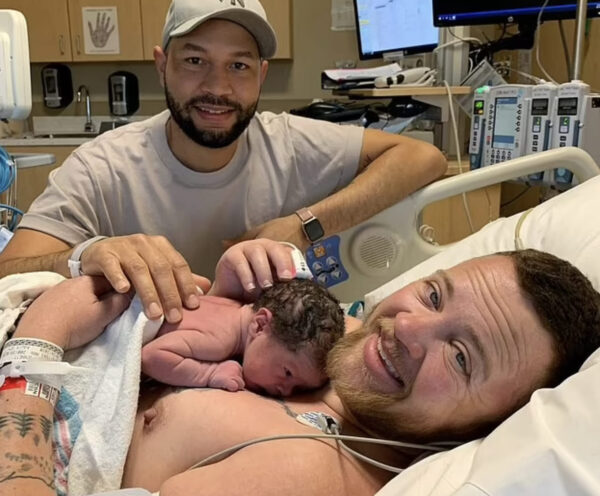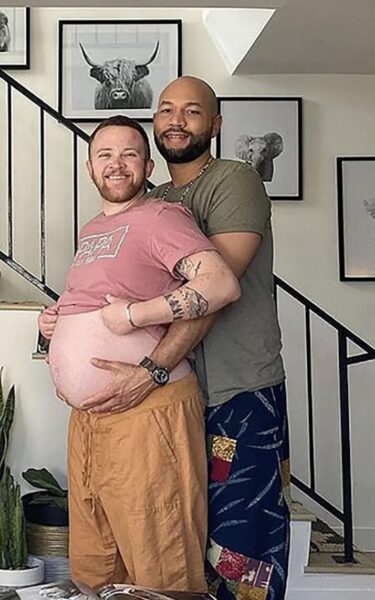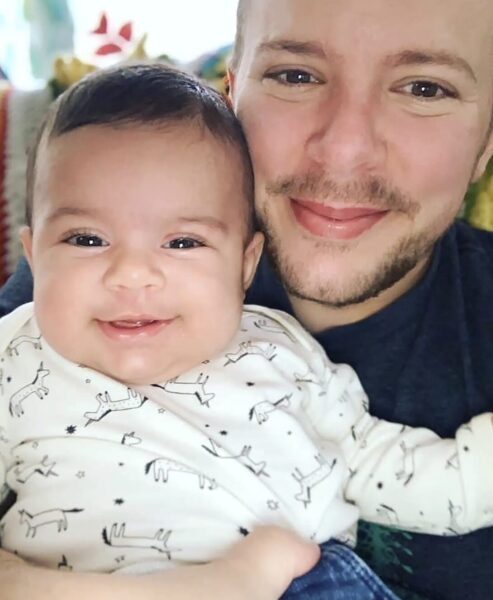Nowadays, using someone’s chosen name and pronouns is one of the simplest and most important ways to show respect for who they are — whether they’re straight, gay, or transgender.
Unfortunately, not everyone follows this basic courtesy. Some still hold on to old-fashioned ideas or simply ignore people’s gender identities altogether.
That’s what happened to 37-year-old Bennett Kaspar-Williams from Los Angeles. In October 2020, Bennett welcomed their son, Hudson, via a cesarean section, with their husband Malik by their side.
Even though Bennett identified as male and used he/him pronouns at the time (they now identify as non-binary and use both he/him and they/them), their experience at the hospital wasn’t without its challenges.

A 37-year-old transgender man — made headlines after publicly condemning medical staff who repeatedly referred to him as “mum” during his pregnancy and after the birth of his child.
Williams welcomed their baby boy via caesarean section.
Yet despite his clear identity and the formality of the birth process, he says hospital staff continually misgendered him. He reports being addressed as “ma’am,” “mum,” and other female-gendered terms.

In his statement, Kaspar-Williams said this experience exposed a gap in awareness within healthcare systems: “Not everyone who gives birth is a mother,” he emphasized.
He urged medical professionals to adopt more inclusive language and better training so all birthing individuals — regardless of gender identity — feel correctly acknowledged and respected.

Hard to Escape
Sharing his frustration about being repeatedly misgendered during childbirth, Bennett Kaspar-Williams emphasized the need to separate womanhood from motherhood.
In an interview with the New York Post, he described the discomfort of being constantly called “mom” despite identifying as male and clearly marking “male” on all medical forms.
“The business of pregnancy — and yes, I call it a business — is so tied to the idea of ‘motherhood’ that it’s nearly impossible to avoid being misgendered,” Bennett explained. “In the U.S., the entire pregnancy care system is built around marketing and celebrating motherhood, with very little room for anyone who doesn’t fit that mold.”
Reflecting on his journey to parenthood, he added:
“No one truly knows whether they can have children until they try. Having a uterus doesn’t automatically mean you can conceive or carry a pregnancy.”
Bennett concluded by calling for a broader understanding of gender and parenting:
“We need to stop equating womanhood with motherhood. Not all women become mothers, not all mothers carry their children, and not everyone who carries a child identifies as a mother. Those are separate experiences — and they all deserve respect.”

The story sparked wider conversations about how the medical industry addresses transgender and birthing patients, especially those who may not conform to traditional gender assumptions.
What do you think on the matter?







